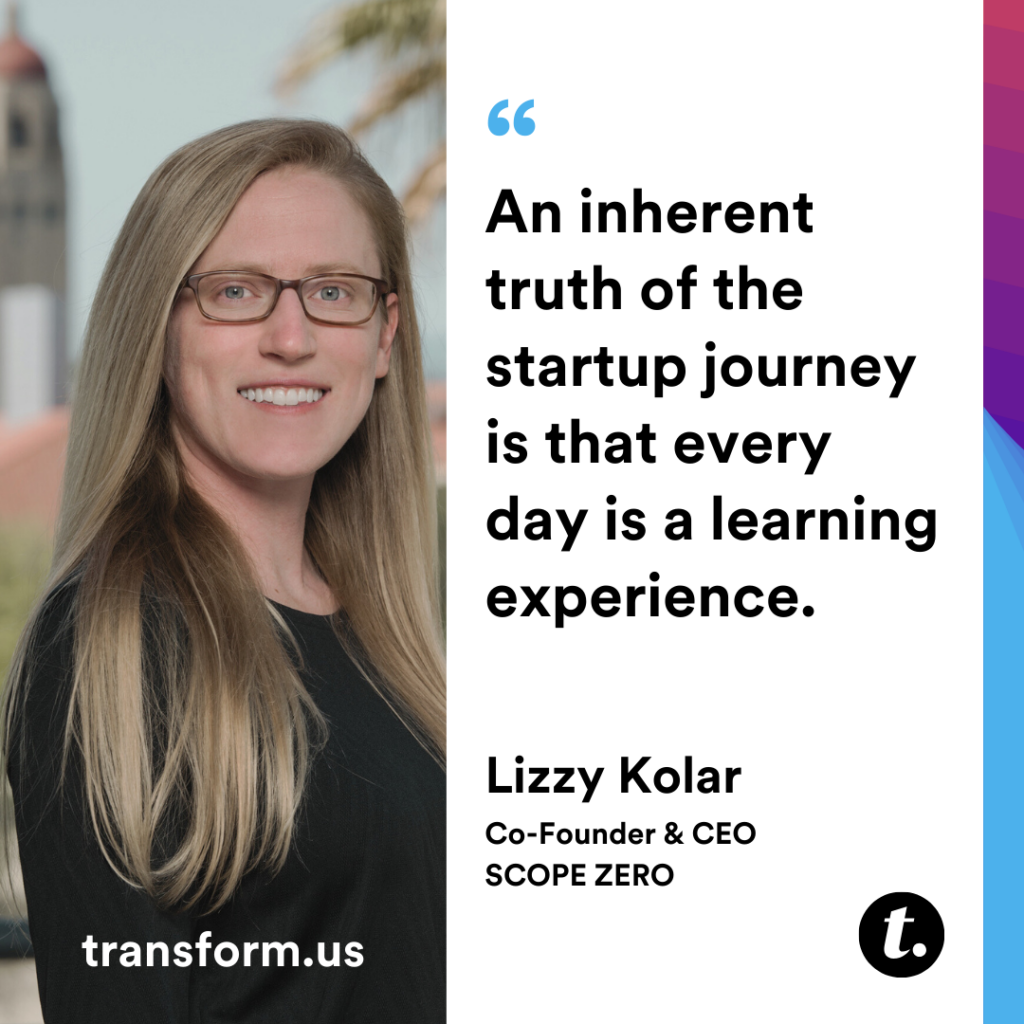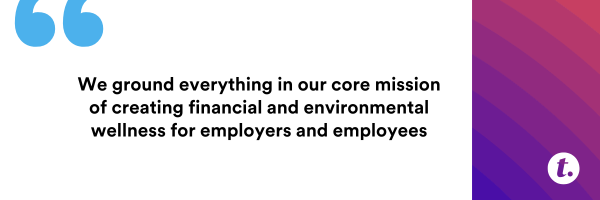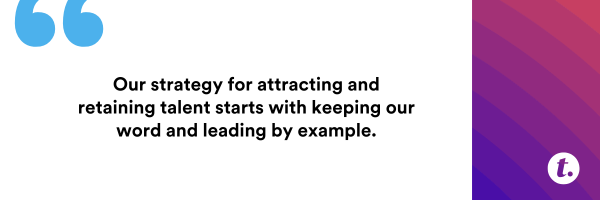
Welcome to Transform’s Founder Spotlight Series, an exciting journey into the minds of innovative leaders who are disrupting the now and next of work.
In each Q&A-style article, we’ll introduce you to founders like Lizzy Kolar, Co-Founder & CEO of Scope Zero, who are redefining the boundaries of their industries with forward-thinking ideas and transformative approaches.

About Lizzy Kolar
Lizzy Kolar is the Co-founder and CEO of Scope Zero. Lizzy holds a master’s degree in sustainable design engineering from Stanford University and a bachelor’s degree in mechanical engineering from West Virginia University. Lizzy developed her expertise in residential energy consumption as an engineer at Ameresco, where she designed cost-effective energy- and water-efficiency upgrades for military base housing across the United States. Lizzy is leading Scope Zero’s mission to reduce personal utility bills and fuel expenses by $300B per year, removing the carbon emissions equivalent of 125M cars from the road.

About Scope Zero
Scope Zero created the Carbon Savings Account® (CSA). Think health savings account (HSA) for home technology and personal transportation upgrades that foster employee financial wellness and corporate ESG. The employee and their employer both contribute funds to the employee’s CSA, then the employee uses their CSA funds for eligible home technology and personal transportation upgrades that reduce their utility bills, fuel expenses, and carbon footprint.
CSA-eligible upgrades (like Energy Star refrigerators, LEDs, and solar panels) can collectively save the average employee over $5,000 per year on utility bills and fuel expenses. The CSA is an employee attraction and retention solution that fosters financial well-being and engages employees in company-wide sustainability values. Additionally, the CSA platform measures and reduces work-from-home and commute emissions to accelerate corporate ESG initiatives.
Startup Journey
Transform: What gave you the idea to start Scope Zero?
Lizzy: I think about the evolution of the Carbon Savings Account® (CSA) over three periods of my life. The first period was my childhood in West Virginia. West Virginia is a beautiful state, but its primary industry is coal, and it is consistently ranked among the top three poorest states in the country. This combination makes for a bit of an ironic setting. Many of my community members were coal miners, risking their health to power our region. At the same time, these folks are primarily part of the almost 30% of Americans who can’t afford their utility bills, let alone the efficiency upgrades that make these bills more affordable.
I was fortunate to go to university and study mechanical engineering, which is my second period of inspiration for the CSA. After my studies at West Virginia University, I worked at Ameresco, designing energy and water efficiency upgrades for military base housing all over the US. In this role, I could put numbers to how unaffordable and inaccessible home efficiency upgrades are, not just for folks in Appalachia but most homes across the US.
This takes me to the third and final period of inspiration for the CSA. In 2019, I left my position at Ameresco for grad school at Stanford University in a program called Sustainable Design and Construction, so again, I focused on energy-efficient building design. While there, I was doing some informal side work with a recently retired VP of Sustainability at Nike who was trying to get all Nike employees to electrify their homes. This got me thinking about how employers and employees can work together to facilitate and accelerate home efficiency upgrades in a way that aligns incentives for both corporations and individuals, both financially and environmentally.
Together with my co-founder, Kaitlin Highstreet, who developed her expertise in employee benefits while working at a 401(k) company called Guideline, we were able to tie all these pieces together to create the Carbon Savings Account®.

Product Development
Transform: Who benefits from Scope Zero?
Lizzy: Ultimately, the CSA benefits companies, their employees, and the planet.
Our product is a platform that facilitates the CSA for both employees and employers. For employees, the CSA platform provides financial savings on home technology and personal transportation upgrades by facilitating the company’s financial contribution to CSA upgrades, surfacing utility and government rebates and tax credits for CSA upgrades, and providing discounts on CSA products through our marketplace. The CSA platform also streamlines the logistics of home and transportation upgrades by providing customized upgrade recommendations that minimize the employee’s utility bills and fuel expenses.
For employers, the CSA is one of the most equitable and low-cost financial wellness benefits to offer. The CSA is equitable because it is relevant to every employee; our CSA members include both renters and homeowners and employees of all ages and geographical locations. The CSA reduces employee turnover costs by attracting, engaging, and retaining talent in a purpose-driven manner. Additionally, because the CSA educates employees about how to reduce their energy and water consumption at home and at work, the company’s office operational costs can decrease. Overall, the CSA measures and reduces employee commute and work-from-home emissions, which accelerates corporate ESG efforts.
Transform: Why is this so important?
Lizzy: The CSA is the most impactful and low-cost solution a company can offer their employees to drive reduction in individual utility consumption and expenses. This is important because most US homes have outdated and inefficient appliances, heating and cooling systems, lighting, and water fixtures. For example, the average person in the US uses over 50 gallons of water per day just inside their home; with simple upgrades to low-flow showers, toilets, sinks, washing machines, and dishwashers, this number can be cut in half. This means that instead of the average American using over 18,000 gallons of water per year at home, they would use closer to 9,000 gallons of water per year instead. So, not only does the CSA facilitate the saving of precious water, but it also saves all associated water utility costs for that employee.

Transform: What are some examples of companies leveraging Scope Zero?
Lizzy: The CSA is beneficial to any employee at any company. Two significant areas of traction for Scope Zero include Fortune 500 companies and mission-driven companies. Most Fortune 500 companies have formal climate commitments, and they’re looking for solutions to engage their employees to reach these commitments. For mission-driven companies, the CSA aligns so well with their culture and priorities to positively impact the world.
Scaling and Growth
Transform: How do you build a strong company culture while scaling Scope Zero?
Lizzy: At Scope Zero, we ground everything in our core mission of creating financial and environmental wellness for employers and employees. As we scale, we ensure that every new team member is committed to our mission and understands how their work contributes to a greater impact. We’re deliberate about how we bring talented, values-aligned, and diverse talent into Scope Zero. It’s essential that, as we scale, we maintain that “small team” feel where everyone is empowered to make an impact. We stay true to our values by embedding purpose into daily operations, which keeps the culture strong even as we grow.
Fundraising
Transform: How do you maintain strong relationships with your investors and optimize their contributions?
Lizzy: We engage with our investors as strategic partners, not just financial backers. We actively seek their advice on critical business decisions, leverage their networks for hiring, and tap into their industry knowledge. Maintaining strong relationships and trust with our investors is all about clear and genuine communication.
Team Building & Leadership
Transform: What are your strategies for attracting and retaining talent at Scope Zero?
Lizzy: People want to work at a company where they can make a difference, and at Scope Zero, they have a direct role in driving financial and environmental wellness at a global scale. Practicing what we preach is one of our most effective strategies for attracting talent. Our philosophy on retention is grounded in two areas: 1) engaging our employees in purpose-driven initiatives at work and home and 2) investing in their growth and well-being (through offerings like the CSA).
Marketing & Branding
Transform: How do you differentiate your brand from competitors?
Lizzy: Scope Zero’s brand focuses on simplicity and financial wellness. We’ve successfully created a one-stop shop for all things home technology and personal transportation that intersect with financial and environmental wellness. With a simple, user-friendly platform that focuses on minimizing cost of living, all employees can find value in the CSA.
Challenges & Lessons Learned
Transform: Can you share any specific lessons or mistakes you made during the startup journey and how you overcame them?
Lizzy: An inherent truth of the startup journey is that every day is a learning experience. We are fortunate to have surrounded ourselves with brilliant team members, advisors, investors, and customers who help us improve our product, sales, and brand daily. The key is to actively listen and to learn quickly from the experts we’ve been fortunate to have within the Scope Zero community.

Industry and Market Insights
Transform: What is one significant trend or prediction that will drive the transformation of work?
Lizzy: The CSA aligns with several of the latest trends we’re seeing with individuals and corporations, both from a financial and sustainability perspective:
Individual financial:
- Residential utility bills have significantly increased with hybrid and remote work.
- There are tighter household budgets from post-pandemic inflation.
Individual sustainability:
- More folks care about what they can personally do to contribute to a healthy planet.
- Employees are demanding that their employers demonstrate commitment to a healthy climate.
Corporate sustainability:
- There has been a massive shift from office building emissions to work-from-home emissions.
- Corporations need to pull every lever they can to meet aggressive climate goals.
Corporate financial:
- Corporations are searching for creative solutions to finance their climate goals.
- Employers are streamlining and modernizing their benefits packages to attract and retain the best talent.
Given these trends, I believe that the standard benefits package will no longer include only healthcare and retirement benefits but also sustainability benefits through the CSA. Equitable, impactful, and mission-driven benefits are increasingly important as companies strive to attract and retain top talent. The CSA provides financial, environmental, and social wellness that drives triple-bottom-line savings for companies.
Company Vision
Transform: What’s next for you and Scope Zero?
Lizzy: Our goal is to scale Scope Zero to achieve savings of over $300B per year in utility costs and fuel expenses, the environmental equivalent of removing 125M cars from the road. With our momentum in the US and abroad, we’re excited to continue working towards this goal.
Lizzy: To People leaders thinking of using Scope Zero, I would say that the Carbon Savings Account is one of the best and most affordable ways to foster financial and environmental wellness for their employees and their company. Furthermore, the budget required to offer the CSA is minuscule compared to overall benefits budgets. Companies that already have benefits like wellness reimbursements or lifestyle spending accounts can also use these budgets for CSA funding.

About You
Transform: What is your personal mantra?
Lizzy: I have always been a big believer in creating widespread positive impact through cumulative individual action. While individual actions might seem like they have a small or negligible impact on the world, cumulative sustainable individual actions from many people add up to a significant impact. Given my work experience and interests, I can’t think of a better way to put this into practice than by educating and facilitating sustainable upgrades for many individuals through the CSA.
Check out other inspiring Founder Spotlights on the Transform blog.
